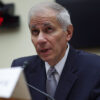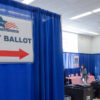The Wall Street Journal reported Tuesday that the Biden administration will reschedule cannabis under the Controlled Substances Act.
Attorney General Merrick Garland will reclassify it from Schedule I, the schedule used for drugs that cannot be prescribed for any medical purpose, to Schedule III, under which it could be prescribed by a physician.
There will be an immediate hubbub over what this rescheduling decision means, for purposes of both drug policy and the November presidential election.
Does Rescheduling Cannabis Legalize Its Sale Across the US?
No, it does not, for two reasons. First, unlike the drugs listed in Schedule I, drugs placed in Schedule III are not contraband. A physician may prescribe the latter.
But your neighborhood “budtender,” whose only training and experience in medicine comes from watching “House, M.D.” or “E.R.,” isn’t a physician.
Second, the Federal Food, Drug, and Cosmetic Act prohibits the distribution of any “new drug” in interstate commerce—cannabis qualifies—unless and until the Food and Drug Administration commissioner has found that it’s “safe,” “effective,” and “uniformly made.” The FDA has never made that finding, and it could not do so under current law.
Hasn’t the FDA Approved the Use of Cannabis?
Nope. The FDA has never approved the raw or botanical form of cannabis. The FDA has approved the use of certain biologically active cannabis compounds (known as cannabinoids), such as dronabinol (Marinol) and nabilone (Cesamet) for treatment of chemotherapy-induced nausea and emesis, as well as for appetite stimulation in cachexic patients suffering from cancer or HIV/AIDS wasting syndrome, along with Epidiolex, a purified form of cannabidiol (CBD), for use in treating Dravet syndrome and Lennox–Gastaut syndrome, severely debilitating forms of childhood-onset epilepsy.
But those drugs are manufactured by legitimate pharmaceutical companies under strict conditions to guarantee their safety, effectiveness, and purity. What your old college roommate grows out in the country or in his basement is not the same.
Does Rescheduling Cannabis Mean It’s Safe to Use?
Absolutely not. As Dr. Nora Volkow, the director of the National Institute on Drug Abuse, told Congress in 2020, “in general, adequate and well-controlled studies are lacking” to test the cannabis sold in states with legalized medical-use or recreational-use regimes. A result is that “individuals across the country are using cannabis strains and extracts that have not undergone the rigorous clinical trials required to show that they are safe and effective for medical use and are not regulated for consistency or quality.”
Much of the cannabis sold in states with medical or recreational cannabis laws has not undergone rigorous testing to ensure that it does not contain dangerous toxins. In fact, commercial cannabis can contain a “hodgepodge” of dangerous contaminants. Among them are microbials (e.g., E.coli, fungi, mold); toxins (e.g., aflatoxins); hazardous chemical solvents remaining from the extraction process (e.g., butane, hexane, propane); pesticides (e.g., organophosphates); heavy metals (e.g., arsenic, cadmium, lead, mercury); and other harmful (e.g., formaldehyde) or distasteful (e.g., insects) substances.
Moreover, unlike ordinary consumer goods, cannabis can lead to dependence or addiction. Like any other substance that produces an intoxicating effect (even if only during its initial use)—such as alcohol, tobacco, or heroin—cannabis generates a pleasurable “high” that people enjoy.
Heavy or long-term use can lead someone to develop a tolerance to cannabis’ psychoactive ingredient, requiring ever greater quantities of that chemical to experience the same euphoria. That increasing-quantity user carries potential downsides. Among them are damage to a user’s mental or physical functioning; physical dependence on THC, which leads to the unpleasant experience of suffering withdrawal symptoms when use is discontinued; or to addiction, in which using cannabis becomes the fulcrum of one’s life.
There’s a 10% risk of dependence for people who have ever used cannabis. That risk increases to between 20% and 33% for people who use the drug more often. The risk jumps to 50%—tantamount to a coin flip—for people who use cannabis daily.
Given the labile nature of the adolescent brain, the risk is greater still for people who begin heavy or long-term use during their youth. As Volkow put it, “as compared with persons who begin to use marijuana in adulthood, those who begin to use in adolescence are approximately two to four times as likely to have symptoms of cannabis dependence within two years after first use.”
Physical dependence is therefore a serious problem.
Numerous states approved the sale of cannabis for medical or recreational use; so, doesn’t that mean cannabis is safe to use?
Heck, no. A state can decide whether or not to legalize cannabis under its own criminal laws. The states that have adopted medical-use or recreational use cannabis programs have not conducted the studies that a legitimate drug sponsor would need to perform to persuade the FDA that cannabis is safe, effective, and uniform.
The states’ legalization of medical-use and recreational-use cannabis without examining or reexamining the potential harms from high-potency forms of that drug should be seen as the scandal that it is.
In the rush to obtain a new source of tax revenue and to satisfy a vocal constituency clamoring for a substance that has only the same painkilling properties as bourbon, those states have chosen to disregard the 80-plus-year judgment that American society has made to forbid large-scale commercialization of a potentially dangerous drug until after it has been proved safe and effective by its sponsors to the FDA.
Maybe a few of those legislators thought that they were offering a respite from pain or other consequences of the maladies that the aged and ill can suffer. Caring might be kindness, but it’s not medicine.
Why Would Biden Reclassify It From Schedule I to III?
Politics.
President Joe Biden thinks that a president’s job is to satisfy as many disparate interest groups as is possible, regardless of whether any particular action is in the overall public interest. So, every now and then—more often as elections approach—he gives every leftist interest group something.
Most recently, it was forgiving student loans to make recent graduates happy—even though the U.S. Supreme Court told him that he lacks such authority. Now, it’s rescheduling cannabis to appease “stoners,” because the Jeff Spicolis out there (and they know who they are) need to be pacified, too—even though the FDA has not approved agricultural cannabis and could not do so.
Making everybody happy might be the task for a mayor or comedian, but a president is responsible for the interests of an entire nation.
Follow the Money: Is Someone Profiting?
Should the Securities and Exchange Commission examine whether any Biden administration officials acted on the basis of inside information to profit off the decision to reschedule cannabis?
You bet. If Donald Trump had rescheduled cannabis, you can bet your bottom dollar that every corporate media outlet from Eastport, Maine, to Adak, Alaska, would demand that the SEC investigate him, his wife, his children, every member of his extended family, every friend he has ever had, and everyone who has the letters T, R, U, M, or P in his or her name to see if someone profited from inside information. Sauce for the goose ought to be sauce for the gander.
Will the SEC undertake such an investigation? To quote that New Jersey philosopher Tony Soprano: “Fuhgeddaboudit!”






























